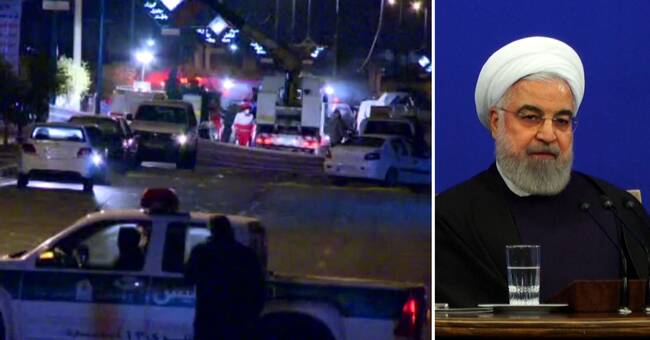According to state and semi-state media, Iranian nuclear researcher Mohsen Fakhrizadeh died in hospital as a result of a bombing and subsequent shooting at his car on Friday.
Now Iranian President Hassan Rohani is speaking out on what the country calls an "act of terrorism".
- The execution of the martyr Fakhrizadeh shows the despair and hatred of our enemies.
His martyrdom will not slow down our performance, said President Hassan Rohani in a statement on Iranian state television, referring to the country's nuclear energy program, reports Reuters.
The president further states, according to Reuters, that Israel is behind the attack, something that the country's foreign minister Javad Zarif indicated already on Friday.
In his statement, Hassan Rohani also promises revenge.
"Iran will respond to our researcher's martyrdom at the appropriate time," he said, according to Reuters.
Threats with attacks
Mohsen Fakhrizadeh is considered to have been instrumental in the development of Iran's nuclear energy program and has previously been singled out by the country's main opponents as the mastermind behind a nuclear bomb project that Iran is accused of having pursued in secret until 2003, writes Reuters.
The act, which is described by the country as an assassination, has now created new tensions between Iran and Israel, where Iran's military commanders have threatened attacks.
After the incident, UN Secretary-General António Guterres has called for restraint to avoid possible escalation of the conflict in the area.
"We call for restraint and to avoid actions that could lead to an escalation of the situation in the region," he said in a statement.
Mohsen Fakhrizadeh's death also risks increasing the risk of war between Iran and its opponents ahead of the change of power in the United States, which could mean that the international nuclear agreement is renewed.
Israel maintains its policy of not commenting on this type of accusation.
At the same time, the United States has denied Iran's allegations of involvement in the act, writes The Guardian.
Correction: An earlier version of this article used the word nuclear program incorrectly instead of nuclear program.

